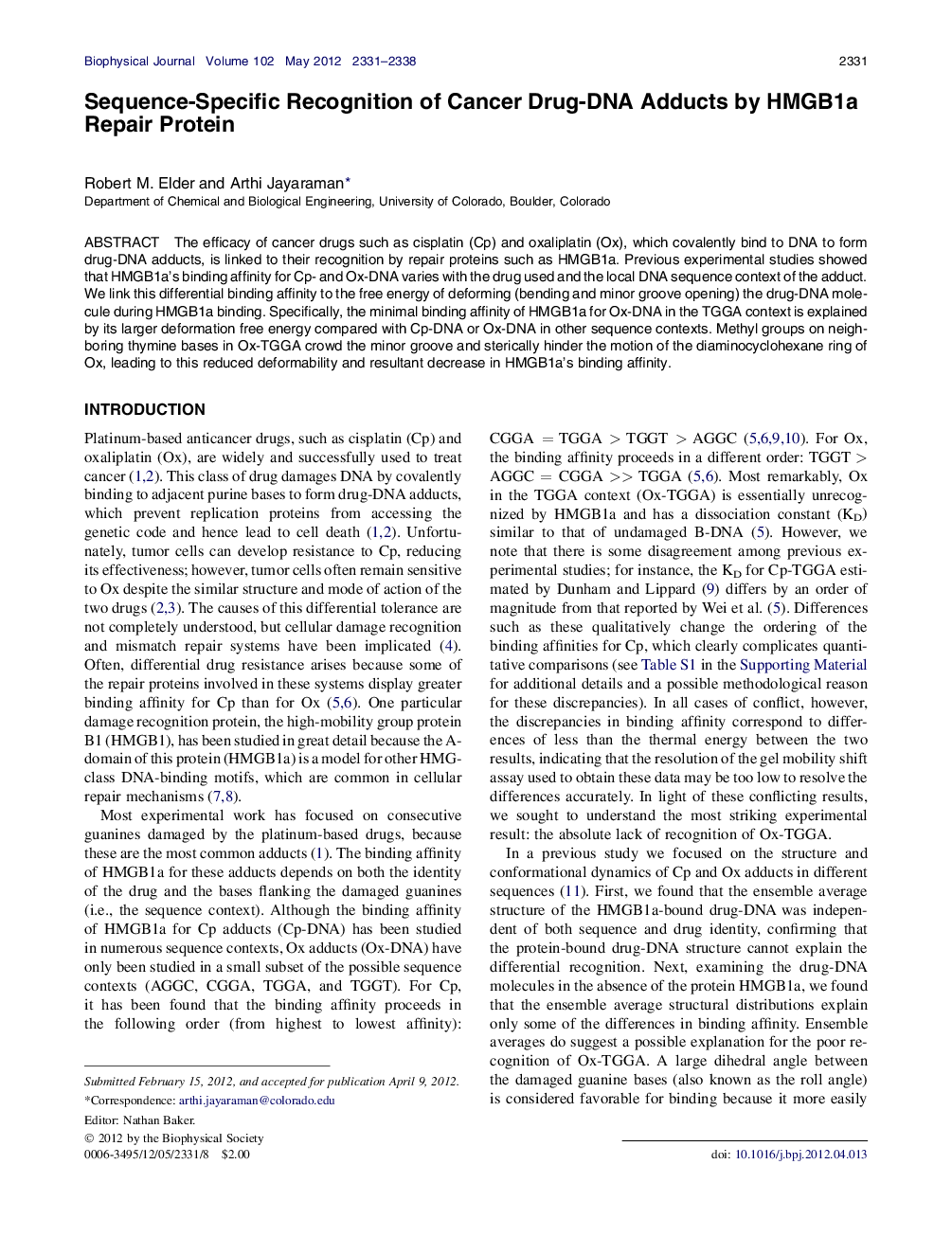| Article ID | Journal | Published Year | Pages | File Type |
|---|---|---|---|---|
| 1954550 | Biophysical Journal | 2012 | 8 Pages |
The efficacy of cancer drugs such as cisplatin (Cp) and oxaliplatin (Ox), which covalently bind to DNA to form drug-DNA adducts, is linked to their recognition by repair proteins such as HMGB1a. Previous experimental studies showed that HMGB1a's binding affinity for Cp- and Ox-DNA varies with the drug used and the local DNA sequence context of the adduct. We link this differential binding affinity to the free energy of deforming (bending and minor groove opening) the drug-DNA molecule during HMGB1a binding. Specifically, the minimal binding affinity of HMGB1a for Ox-DNA in the TGGA context is explained by its larger deformation free energy compared with Cp-DNA or Ox-DNA in other sequence contexts. Methyl groups on neighboring thymine bases in Ox-TGGA crowd the minor groove and sterically hinder the motion of the diaminocyclohexane ring of Ox, leading to this reduced deformability and resultant decrease in HMGB1a's binding affinity.
